15 years one-stop China custom CNC machining parts factory
 149 |
Published by VMT at Nov 29 2023
149 |
Published by VMT at Nov 29 2023
Comparison of Different Aluminum Alloy Materials for CNC Machining
When it comes to CNC machining of aluminum, various alloy materials offer distinct properties that cater to different applications. Here's a comparison of some commonly used aluminum alloys, highlighting their characteristics and suitability for CNC machining:
6061 Aluminum Alloy: Overview
6061 aluminum alloy is a versatile and widely used material known for its excellent combination of mechanical properties, weldability, and corrosion resistance. It belongs to the 6xxx series of aluminum alloys, which are heat-treatable and commonly used in various industrial applications. Here's an overview of the key features of 6061 aluminum:
Composition:
6061 aluminum alloy primarily consists of aluminum, with magnesium and silicon as the major alloying elements. It also contains trace amounts of other elements such as chromium and copper.
Properties:
Strength: 6061 offers good strength, comparable to many structural steels. It can be further enhanced through heat treatment.
Machinability: Exhibits excellent machinability, making it a popular choice for CNC machining and other fabrication processes.
Weldability: 6061 can be easily welded using various methods, and its welds exhibit good strength.
Corrosion Resistance: Provides good resistance to corrosion, although not as high as some other aluminum alloys like 5052 or 5083.
Heat Treatment:
6061 is a heat-treatable alloy, and the T6 temper (solution heat-treated and artificially aged) is commonly used to achieve the highest levels of mechanical properties.
Applications:
Aerospace: Used in aircraft components and structures due to its lightweight and high strength.
Automotive: Commonly found in automotive parts, including frames, wheels, and other structural components.
Structural Components: Widely used in the construction of various structural components for buildings, bridges, and industrial structures.
Consumer Goods: Utilized in the manufacturing of consumer goods such as bicycle frames, sports equipment, and furniture.
Machined Parts: Popular for CNC machined parts, where its machinability and strength are advantageous.
Extrusion:
6061 is well-suited for extrusion processes, allowing the creation of complex shapes and profiles.
Anodizing:
Responds well to anodizing processes, providing a protective and decorative finish.
Availability:
Readily available in various forms, including sheets, plates, bars, and extrusions.
Overall, 6061 aluminum alloy is a versatile material chosen for its balance of strength, machinability, and corrosion resistance. Its wide range of applications spans industries such as aerospace, automotive, construction, and consumer goods.
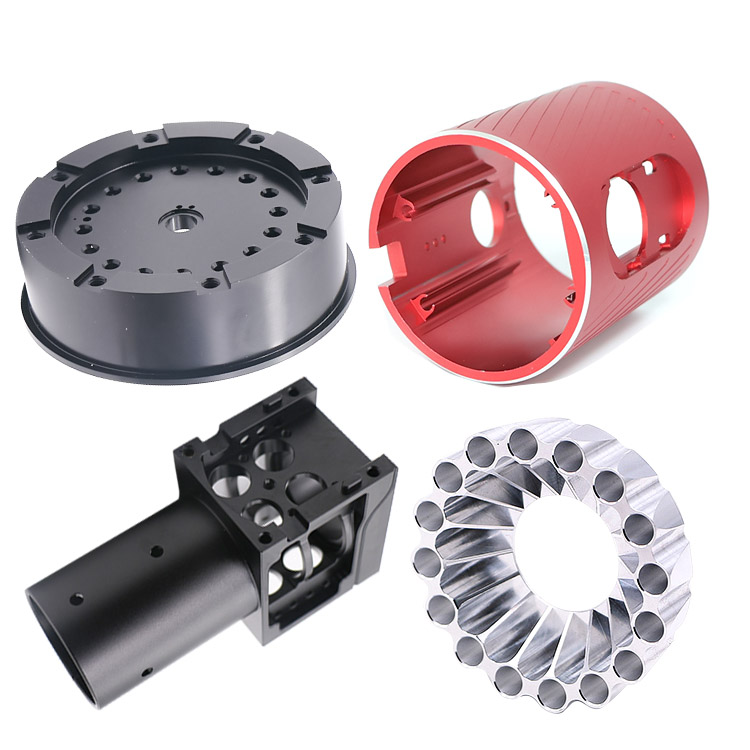
7075 Aluminum Alloy: Overview
7075 aluminum alloy is a high-strength, heat-treatable aluminum alloy known for its exceptional strength-to-weight ratio. It belongs to the 7xxx series of aluminum alloys and is widely used in applications where high strength, low density, and corrosion resistance are critical. Here's an overview of the key features of 7075 aluminum:
Composition:
The main alloying elements in 7075 are aluminum, zinc, and copper. It also contains small amounts of other elements, including magnesium and chromium.
Properties:
High Strength: 7075 is renowned for its high strength, making it one of the strongest aluminum alloys available. It competes with some low to medium strength steels.
Lightweight: Despite its high strength, 7075 is relatively lightweight, contributing to its widespread use in aerospace applications.
Corrosion Resistance: Offers good corrosion resistance, although not as high as some other aluminum alloys like 6061 or 5052.
Heat Treatment:
7075 is heat-treatable, and the T6 temper (solution heat-treated and artificially aged) is commonly used to achieve its maximum mechanical properties.
Applications:
Aerospace: Widely used in aerospace applications, including aircraft structures, fuselage components, and critical parts requiring high strength.
High-Performance Equipment: Utilized in high-performance equipment, such as bike frames, rock climbing equipment, and firearm components.
Automotive: Found in certain automotive components, particularly in high-performance and racing applications.
Machined Parts: Suitable for CNC machining due to its machinability and high strength, making it a popular choice for precision components.
Extrusion:
While extrusion is possible, 7075 is often used in applications where high strength is a primary consideration, and extrusion may not be the preferred manufacturing method.
Weldability:
Welding 7075 can be challenging due to its high strength and sensitivity to heat. Specialized welding techniques and considerations are required.
Anodizing:
Responds well to anodizing processes, providing a protective and decorative finish.
Availability:
Available in various forms, including sheets, plates, bars, and extrusions.
7075 aluminum alloy is a go-to material for applications requiring a combination of exceptional strength and low weight. Its use is prominent in industries where high-performance materials are essential, such as aerospace, defense, and sports equipment.
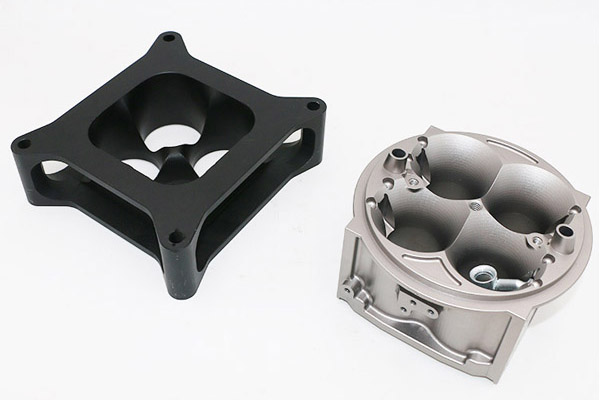
5052 Aluminum Alloy: Overview
5052 aluminum alloy is a non-heat-treatable alloy known for its excellent corrosion resistance, good formability, and moderate strength. It belongs to the 5xxx series of aluminum alloys, which are commonly used for various applications requiring a balance of these properties. Here's an overview of the key features of 5052 aluminum:
Composition:
The primary alloying element in 5052 is aluminum, with magnesium as the main additional element. Small amounts of chromium and other elements may also be present.
Properties:
Corrosion Resistance: 5052 offers excellent corrosion resistance in marine and harsh environments, making it suitable for applications where exposure to moisture is a concern.
Formability: Exhibits good formability, allowing it to be easily shaped and fabricated into different forms.
Moderate Strength: While not as strong as some other aluminum alloys like 7075, 5052 provides sufficient strength for many applications.
Weldability: Demonstrates good weldability, allowing for various welding techniques to be used.
Applications:
Marine Applications: Widely used in the marine industry for components exposed to saltwater, such as boat hulls and structures.
Sheet Metal Fabrication: Commonly used for sheet metal fabrication, including automotive panels, appliance components, and signage.
Architectural Components: Utilized in architectural applications, such as roofing, siding, and trim due to its corrosion resistance.
Pressure Vessels: Suitable for the fabrication of pressure vessels where corrosion resistance is crucial.
General Fabrication: Used in various general fabrication projects where a combination of corrosion resistance and formability is required.
Heat Treatment:
5052 is a non-heat-treatable alloy, meaning its properties are not significantly altered by heat treatment.
Machinability:
Exhibits good machinability, allowing for ease of machining processes.
Anodizing:
Responds well to anodizing processes, providing a protective and decorative finish.
Availability:
Readily available in various forms, including sheets, plates, and coils.
Overall, 5052 aluminum alloy is a versatile material chosen for its corrosion resistance and formability. Its broad range of applications spans industries such as marine, automotive, architecture, and general fabrication.
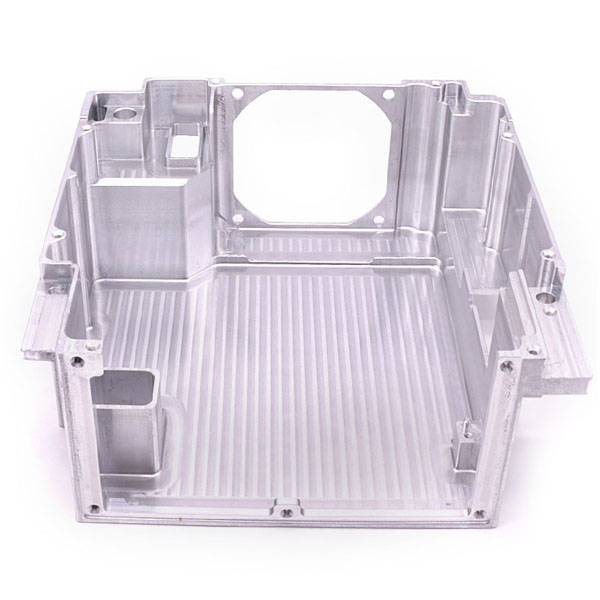
6082 Aluminum Alloy: Overview
6082 aluminum alloy is a versatile and heat-treatable alloy known for its excellent machinability, high strength, and good corrosion resistance. It belongs to the 6xxx series of aluminum alloys, which are heat-treatable and widely used in various applications requiring a combination of these properties. Here's an overview of the key features of 6082 aluminum:
Composition:
The primary alloying elements in 6082 are aluminum, silicon, and magnesium. Small amounts of other elements, including chromium and copper, may also be present.
Properties:
Machinability: 6082 exhibits excellent machinability, making it well-suited for CNC machining and other fabrication processes.
High Strength: Offers high tensile strength, comparable to certain structural steels, after heat treatment.
Corrosion Resistance: Provides good corrosion resistance, especially in outdoor and marine environments.
Weldability: Demonstrates good weldability, allowing for various welding techniques.
Heat Treatment:
6082 is a heat-treatable alloy, and the T6 temper (solution heat-treated and artificially aged) is commonly used to achieve its maximum mechanical properties.
Applications:
Structural Components: Widely used in the construction of structural components for buildings, bridges, and industrial structures.
Machined Parts: Ideal for CNC machined parts due to its machinability and strength.
Automotive Components: Used in various automotive applications, including frames and components requiring high strength.
Marine Applications: Suitable for marine applications due to its corrosion resistance.
Extruded Profiles: Often used in the production of extruded profiles for a variety of applications.
Extrusion:
6082 is well-suited for extrusion processes, allowing the creation of complex shapes and profiles.
Anodizing:
Responds well to anodizing processes, providing a protective and decorative finish.
Availability:
Readily available in various forms, including sheets, plates, bars, and extrusions.
Overall, 6082 aluminum alloy is a versatile material chosen for its balance of machinability, strength, and corrosion resistance. Its use is prevalent in applications ranging from structural components to machined parts and extruded profiles.
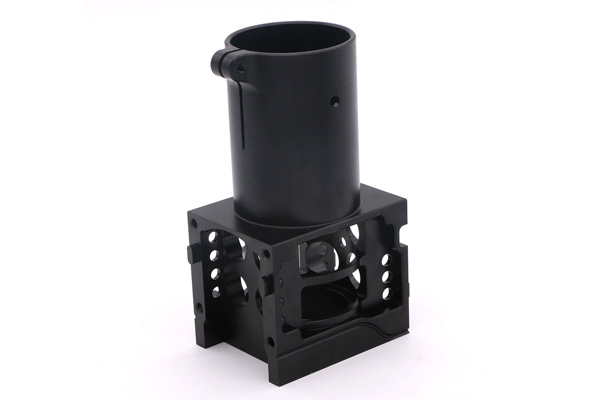
2024 Aluminum Alloy: Overview
2024 aluminum alloy is a high-strength and heat-treatable aluminum alloy known for its excellent strength-to-weight ratio. It belongs to the 2xxx series of aluminum alloys, which are typically used in aerospace and high-performance applications. Here's an overview of the key features of 2024 aluminum:
Composition:
The primary alloying elements in 2024 are aluminum, copper, and a small amount of manganese. It also contains trace amounts of other elements such as magnesium.
Properties:
High Strength: 2024 is known for its high tensile strength, making it one of the strongest aluminum alloys.
Heat Treatability: The alloy is heat-treatable, and the T3, T4, and T6 tempers are commonly used to achieve different levels of strength.
Fatigue Resistance: Exhibits good fatigue resistance, making it suitable for aerospace applications where cyclic loading is a concern.
Poor Corrosion Resistance: Compared to some other aluminum alloys, 2024 has relatively poor corrosion resistance, especially in harsh environments.
Applications:
Aerospace Components: Widely used in the aerospace industry for structural components, including aircraft fuselage and wing structures.
High-Performance Parts: Applied in the manufacturing of high-performance parts such as bike frames, motorbike components, and certain automotive parts.
Structural Applications: Used in various structural applications where a combination of strength and lightweight properties is essential.
Heat Treatment:
The T3, T4, and T6 tempers are commonly employed to enhance the mechanical properties of 2024.
Machinability:
Exhibits good machinability, allowing for precision machining of complex parts.
Weldability:
Welding 2024 can be challenging due to its susceptibility to heat-affected zone cracking. Specialized welding techniques and considerations are required.
Extrusion:
While extrusion is possible, 2024 is often used in applications where high strength is a primary consideration, and extrusion may not be the preferred manufacturing method.
Anodizing:
Responds well to anodizing processes, providing a protective and decorative finish.
Availability:
Readily available in various forms, including sheets, plates, bars, and extrusions.
Overall, 2024 aluminum alloy is a favored choice in applications where a high strength-to-weight ratio is critical, particularly in aerospace and high-performance sectors.
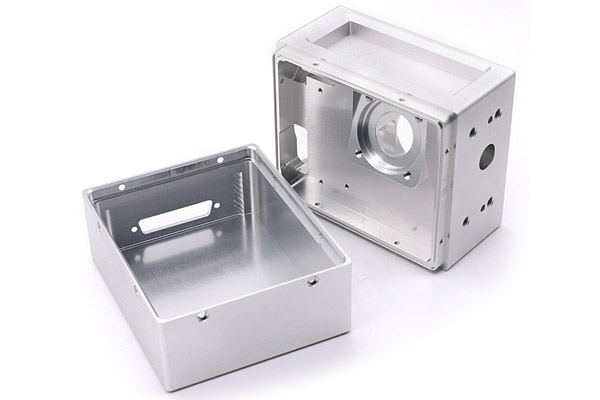
6063 Aluminum Alloy: Overview
6063 aluminum alloy is a widely used extrusion alloy with excellent characteristics for various applications. It belongs to the 6xxx series of aluminum alloys, known for their good extrudability and formability. Here's an overview of the key features of 6063 aluminum:
Composition:
The primary alloying elements in 6063 are aluminum and silicon. Small amounts of other elements, including magnesium and manganese, may also be present.
Properties:
Extrudability: 6063 is known for its excellent extrudability, allowing for the production of complex shapes and profiles.
Formability: Exhibits good formability, making it suitable for various fabrication processes.
Corrosion Resistance: Provides good corrosion resistance, especially in architectural applications.
Surface Finish: Takes well to various finishes, including anodizing, painting, and powder coating.
Applications:
Architectural Applications: Widely used for architectural extrusions, window frames, door frames, and curtain walls due to its aesthetic appeal and corrosion resistance.
Automotive Trim: Applied in the automotive industry for trim components due to its formability and finish options.
Furniture and Frames: Commonly used in the production of furniture, frames, and other decorative items.
Heat Sinks: Used in the fabrication of heat sinks due to its thermal conductivity.
Pipes and Tubes: Utilized in the manufacture of pipes and tubes for various applications.
Heat Treatment:
6063 is not generally heat-treated, as its strength is primarily obtained through the extrusion process.
Machinability:
Exhibits good machinability for applications that require post-extrusion machining.
Weldability:
6063 has good weldability, allowing for various welding techniques.
Extrusion:
Well-suited for extrusion processes, making it a popular choice for the production of aluminum profiles.
Anodizing:
Responds well to anodizing processes, providing a protective and decorative finish.
Availability:
Readily available in various forms, including extrusions, sheets, and plates.
6063 aluminum alloy is a versatile material, valued for its ease of extrusion, formability, and corrosion resistance. Its wide range of applications includes architectural, automotive, and decorative uses, among others.

5083 Aluminum Alloy: Overview
5083 aluminum alloy is a high-strength and corrosion-resistant alloy commonly used in marine applications due to its excellent performance in harsh environments. It belongs to the 5xxx series of aluminum alloys, which are characterized by a combination of good weldability, formability, and resistance to atmospheric corrosion. Here's an overview of the key features of 5083 aluminum:
Composition:
The primary alloying element in 5083 is aluminum, with significant amounts of magnesium and smaller additions of manganese and chromium. These elements contribute to the alloy's strength and corrosion resistance.
Properties:
High Strength: 5083 exhibits high tensile strength, making it suitable for applications requiring structural integrity and strength.
Corrosion Resistance: Known for excellent corrosion resistance, particularly in marine environments where exposure to saltwater is a concern.
Weldability: Offers good weldability, allowing for various welding processes to be used in the fabrication of components.
Formability: Demonstrates good formability, allowing for the creation of complex shapes and structures.
Applications:
Marine Components: Widely used in the construction of ship hulls, boat decks, and other marine components due to its corrosion resistance.
Offshore Structures: Applied in offshore platforms and structures where resistance to saltwater corrosion is critical.
Aerospace: Used in aerospace applications, particularly in the construction of aircraft components.
Pressure Vessels: Suitable for the fabrication of pressure vessels where a combination of strength and corrosion resistance is required.
Heat Treatment:
5083 is not heat-treatable, and its mechanical properties are typically achieved through cold working.
Machinability:
Exhibits good machinability for applications that require precision machining.
Anodizing:
Can be anodized for enhanced surface protection and decorative purposes.
Availability:
Readily available in various forms, including sheets, plates, and extrusions.
5083 aluminum alloy is a versatile material chosen for its exceptional combination of strength and corrosion resistance. Its prevalence in marine and aerospace applications showcases its ability to withstand challenging environments and maintain structural integrity over time.
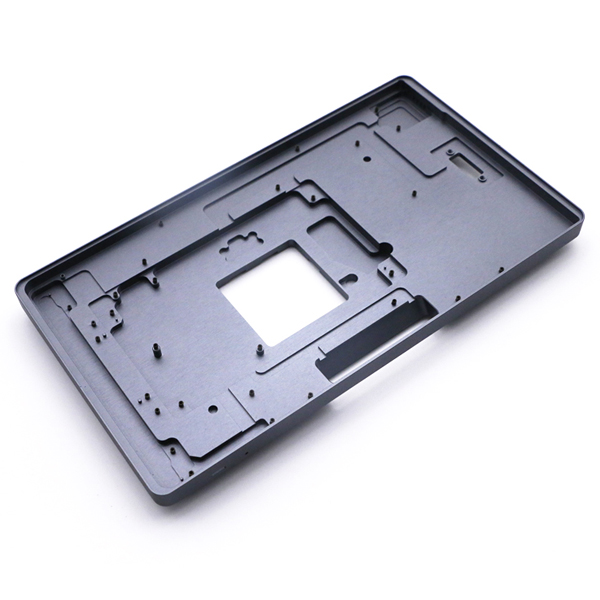
When selecting an aluminum alloy for CNC machining, it's crucial to consider the specific requirements of the application, such as strength, corrosion resistance, and machinability. The choice of alloy will impact the ease of machining, the final part's properties, and its overall performance in the intended use.
